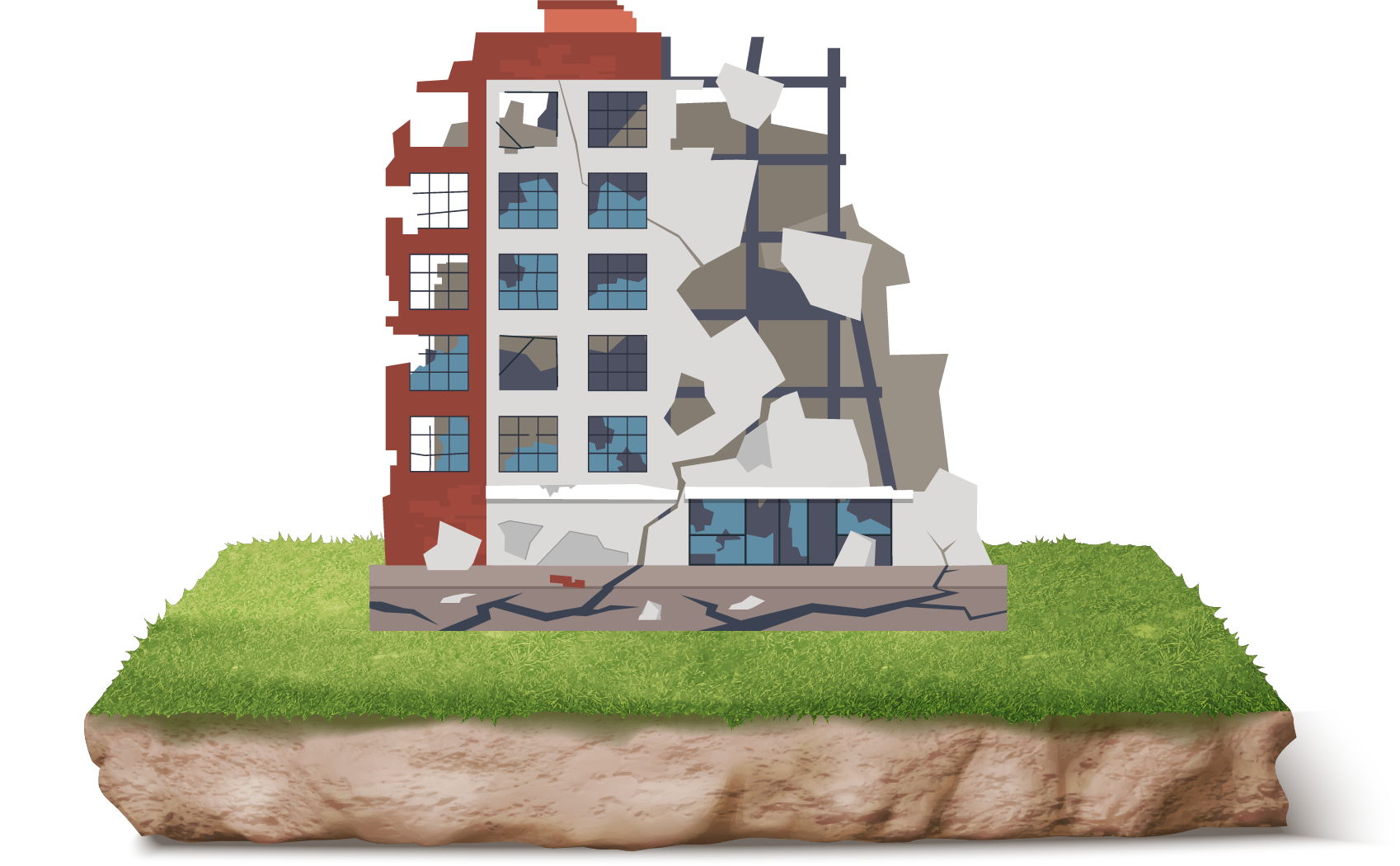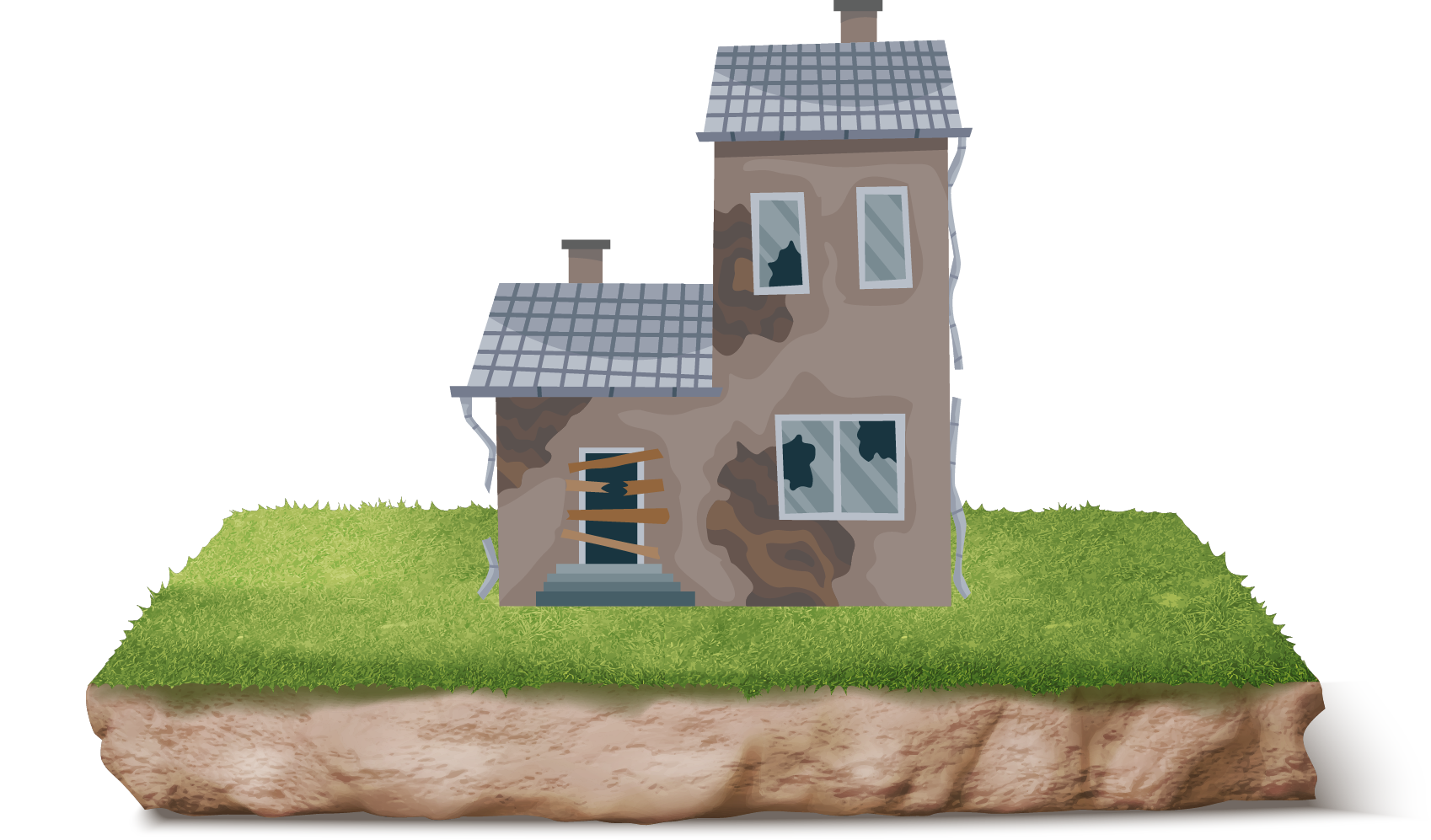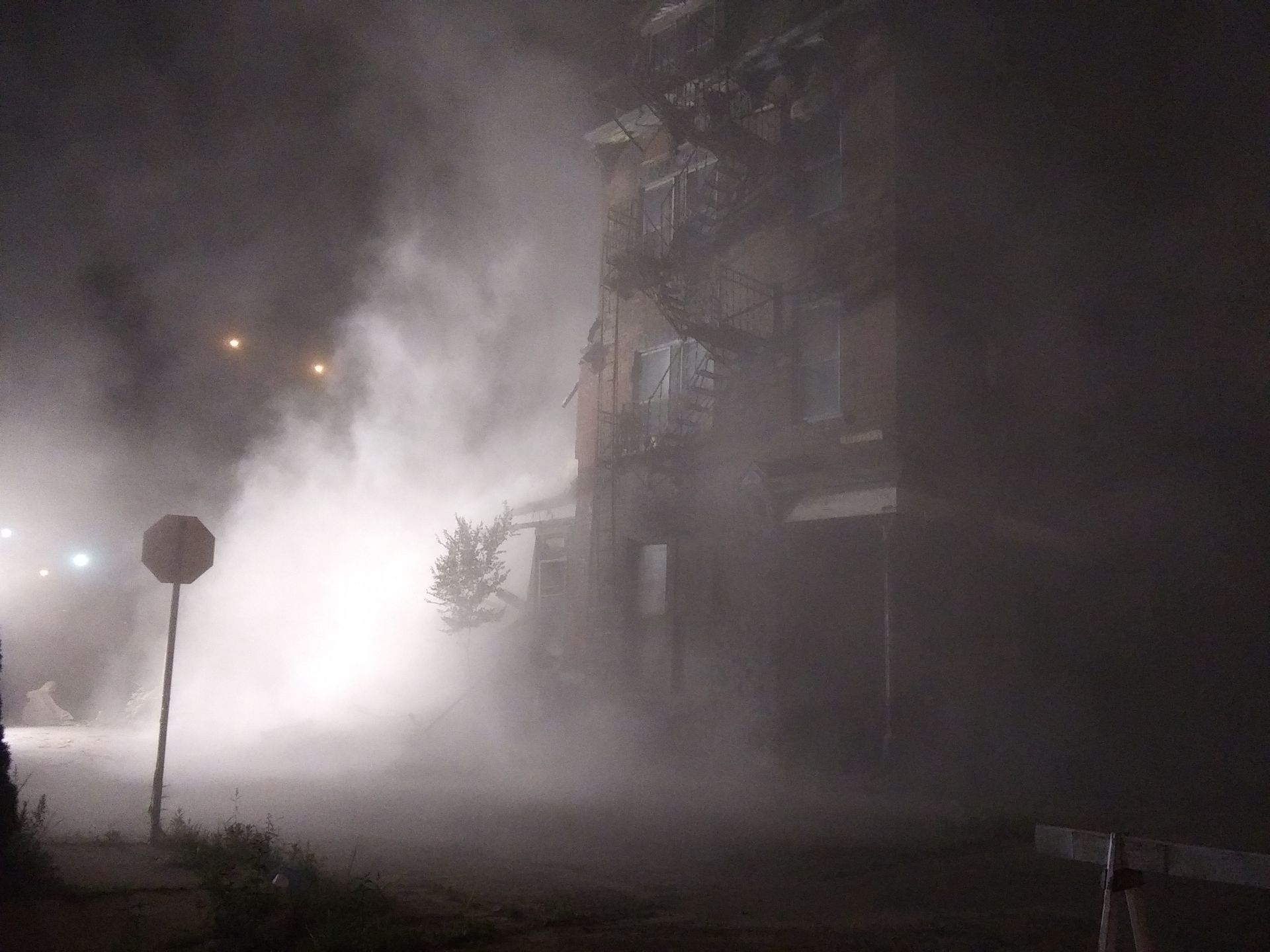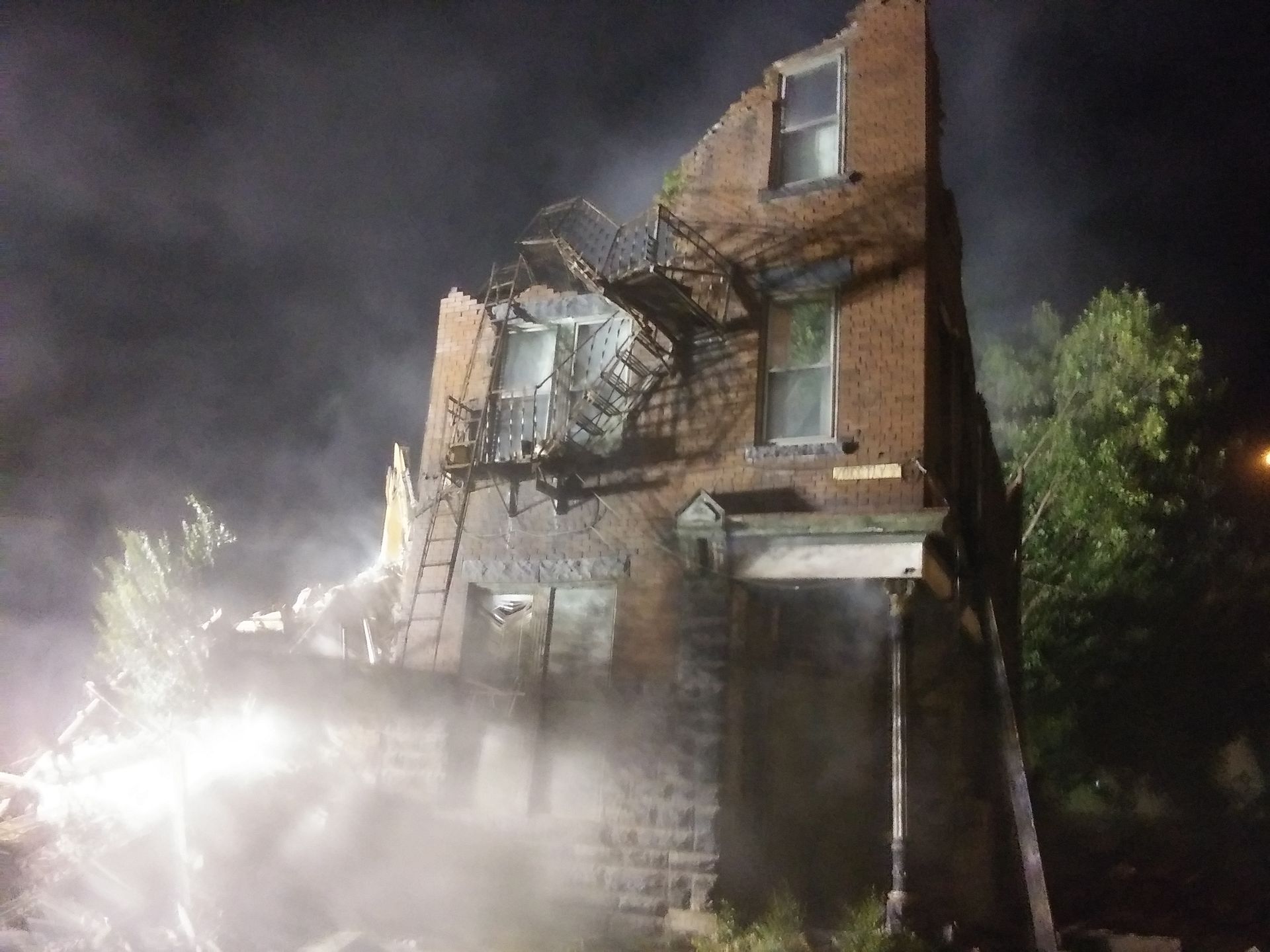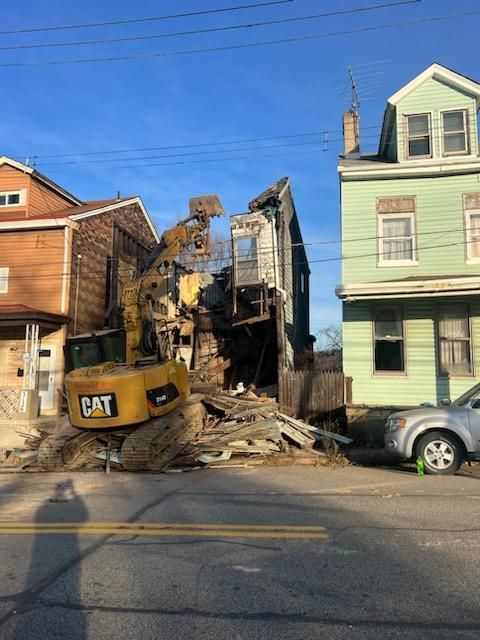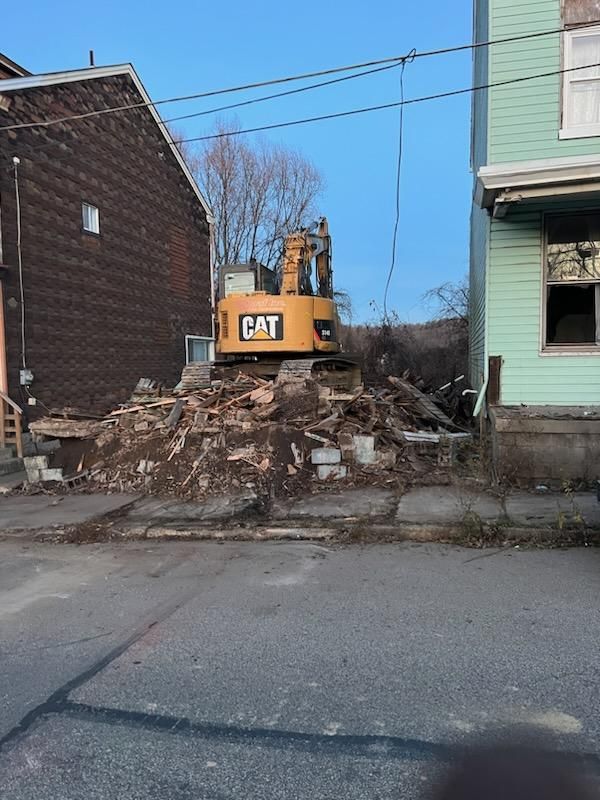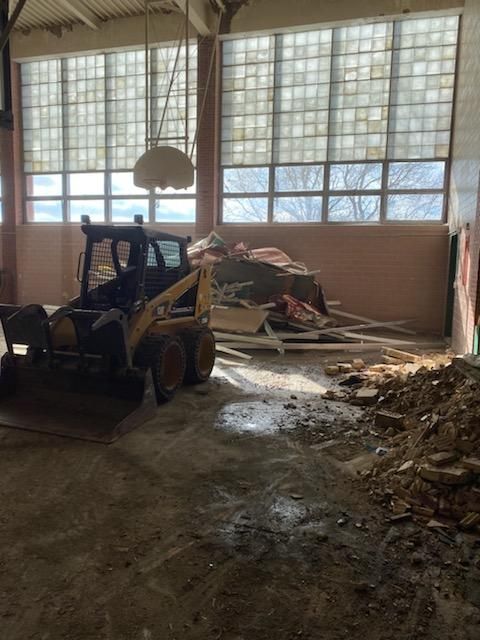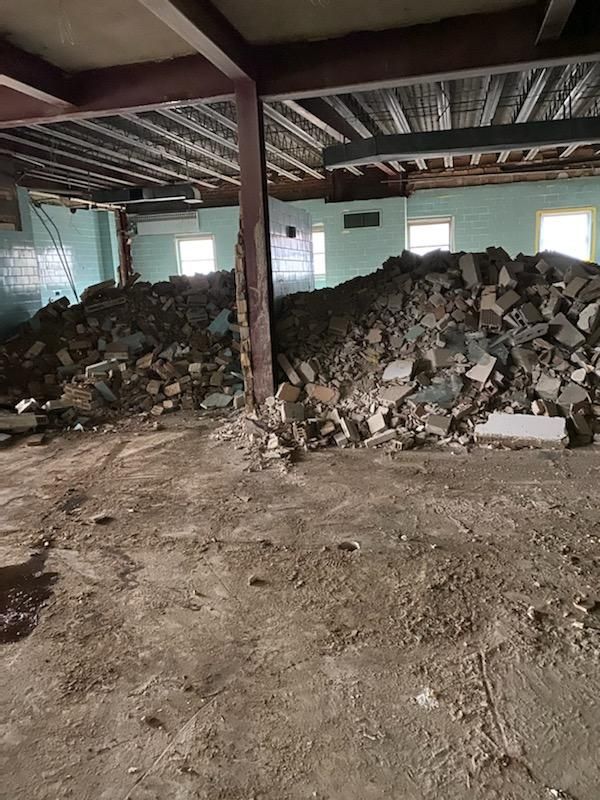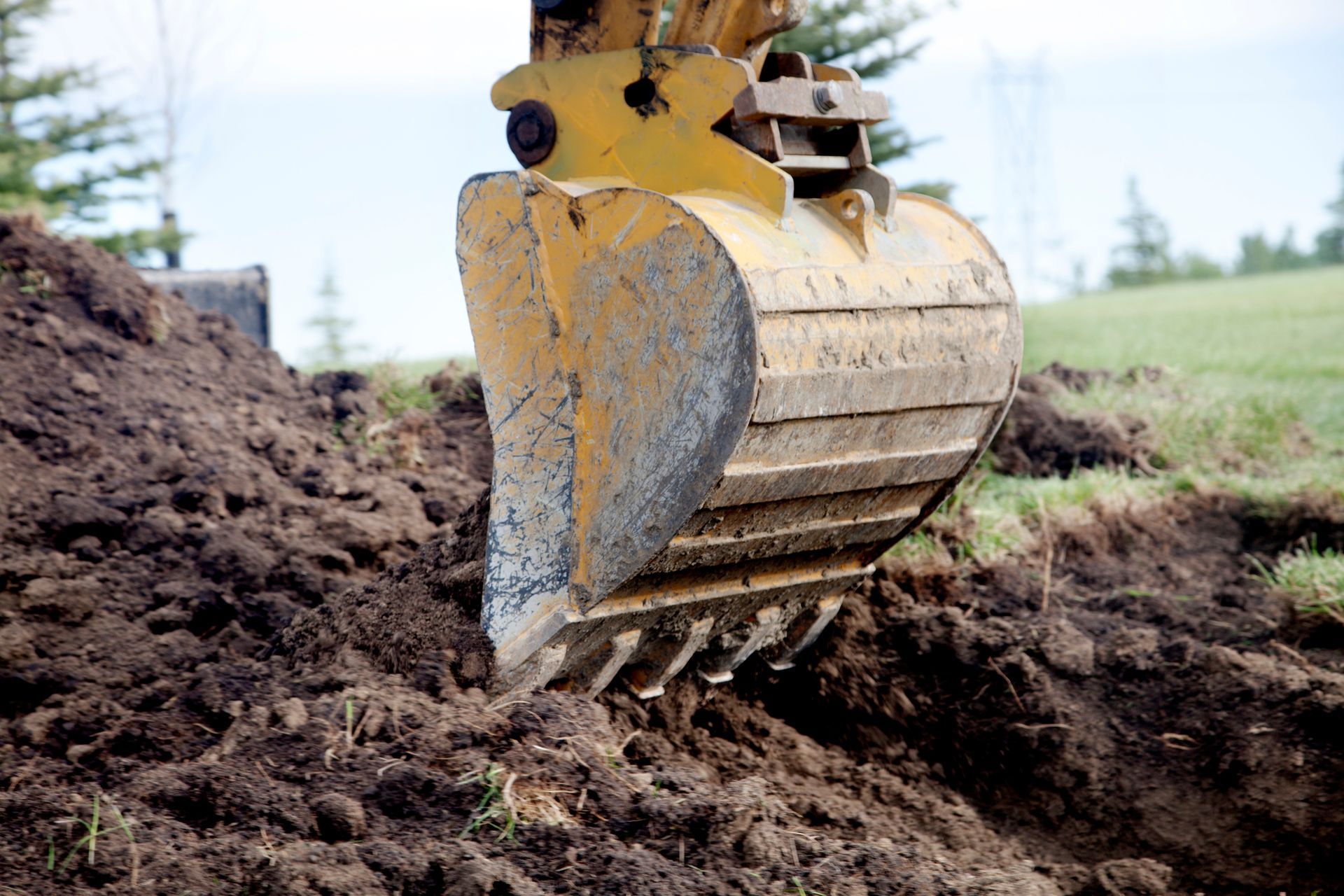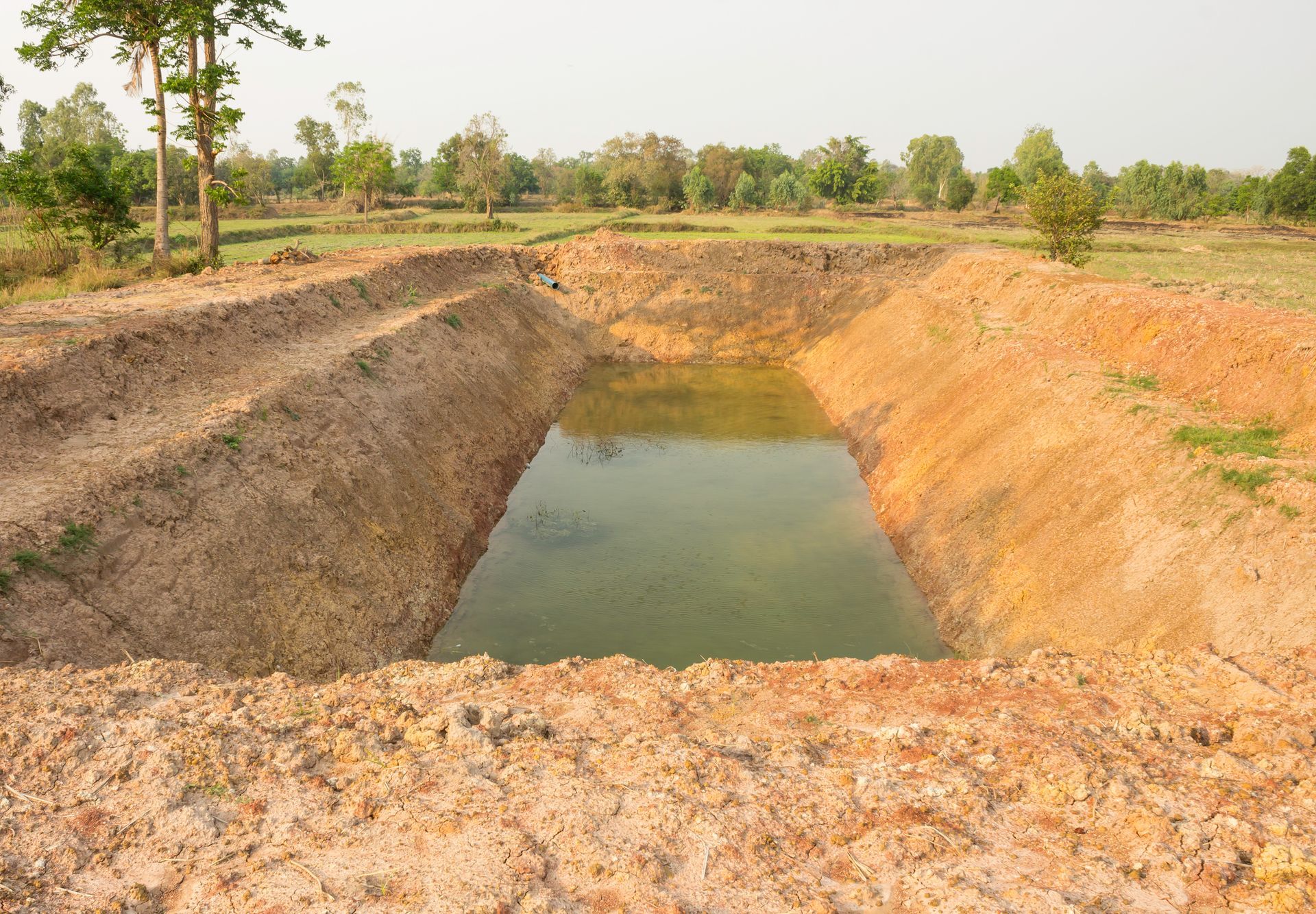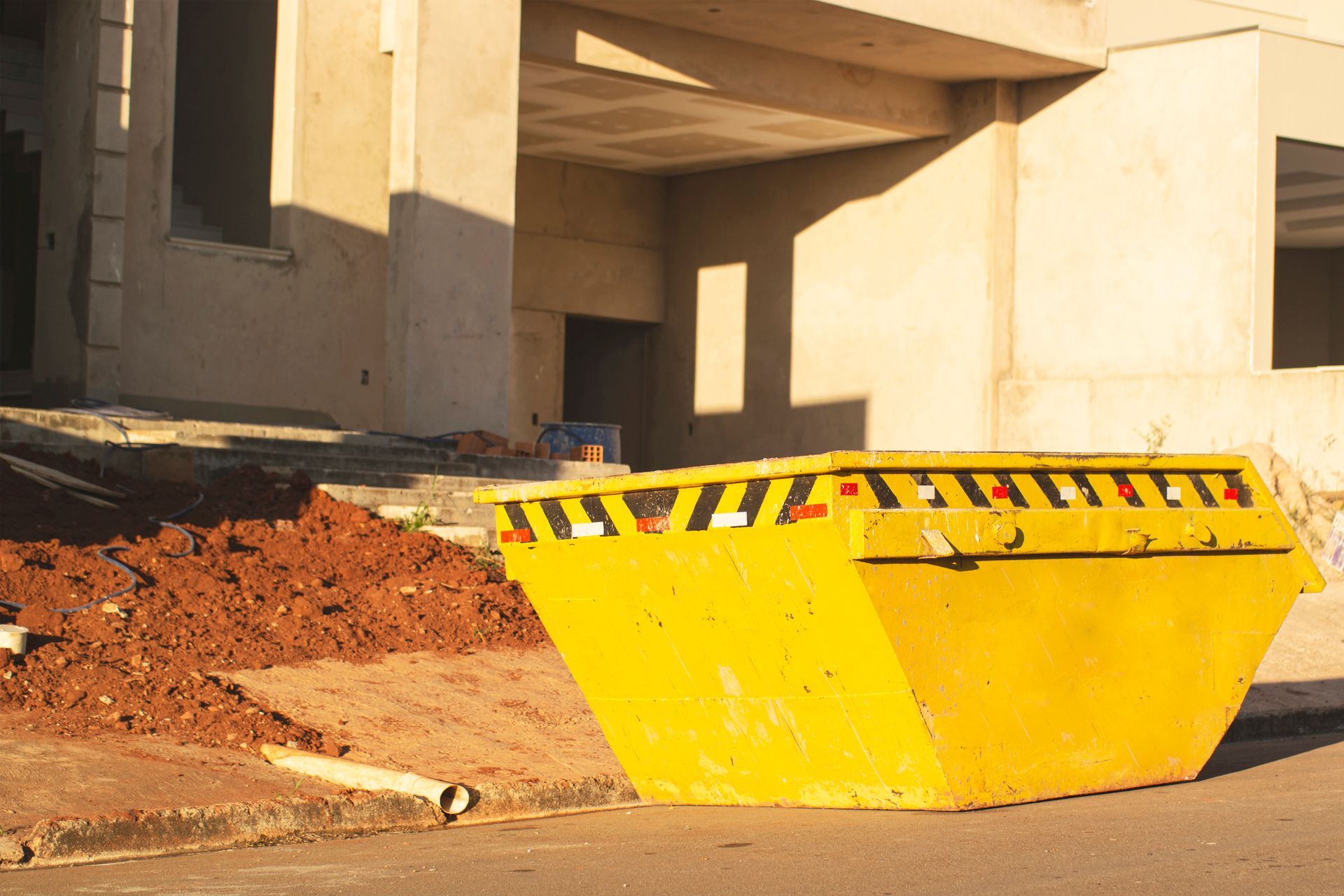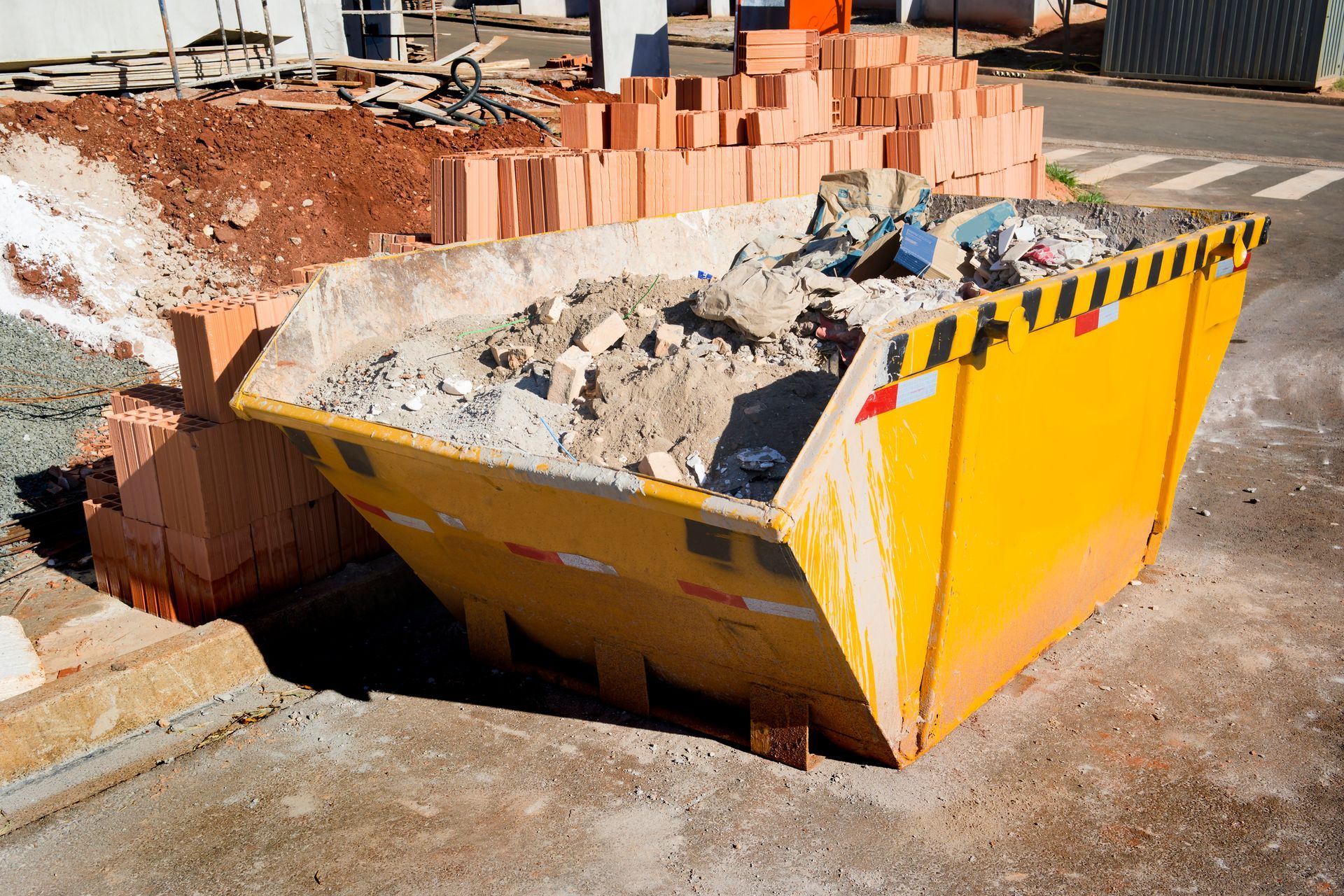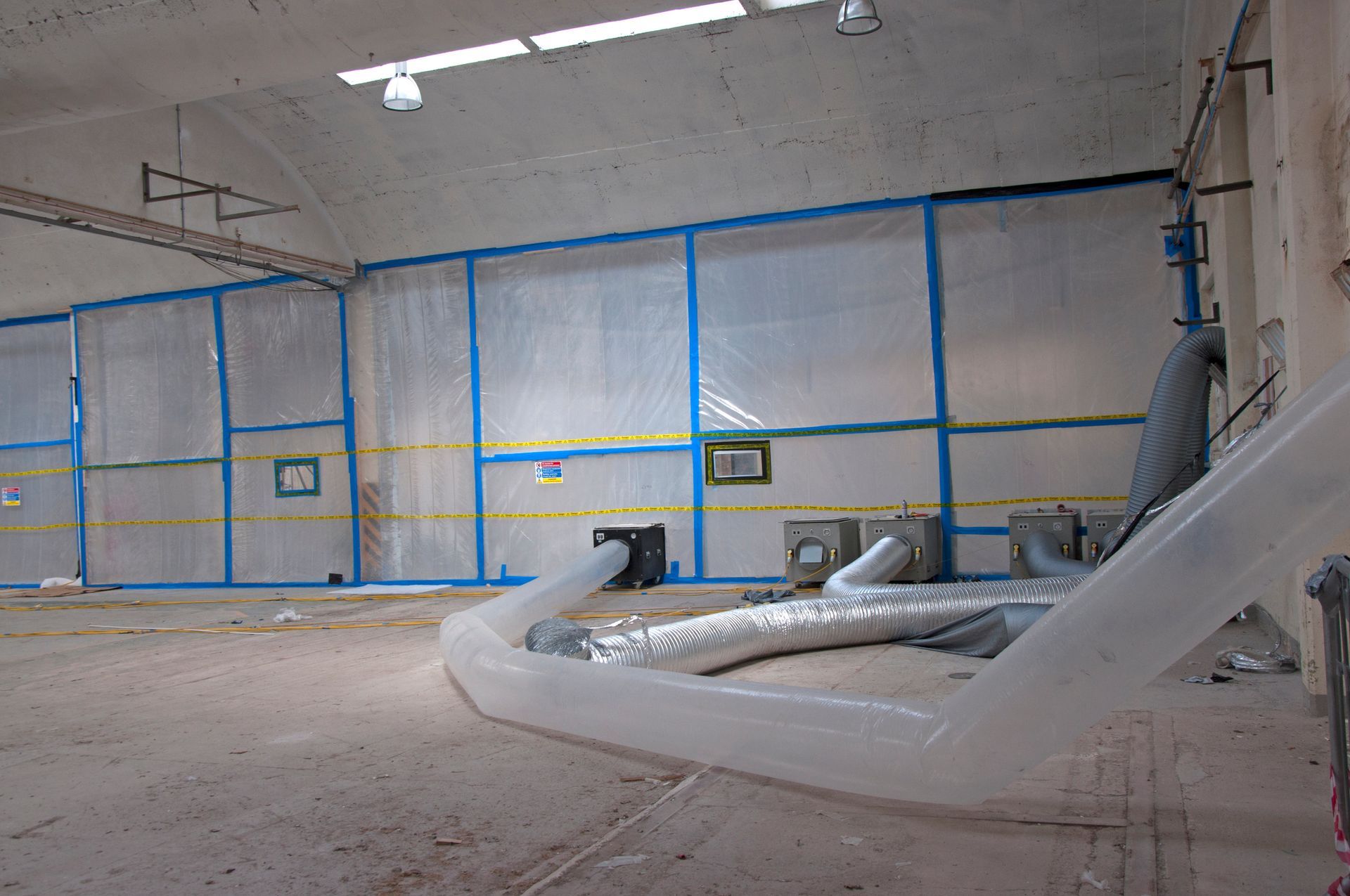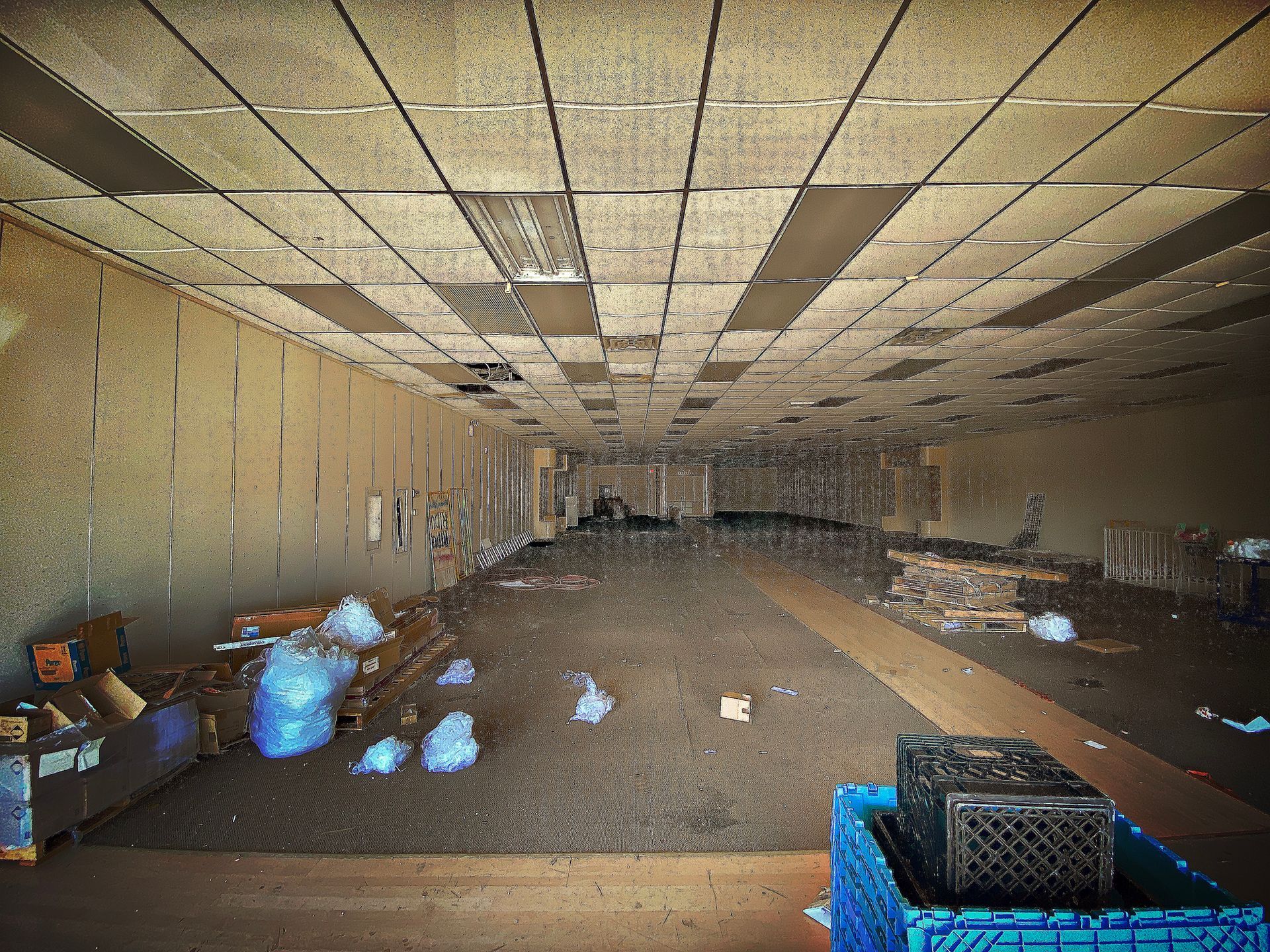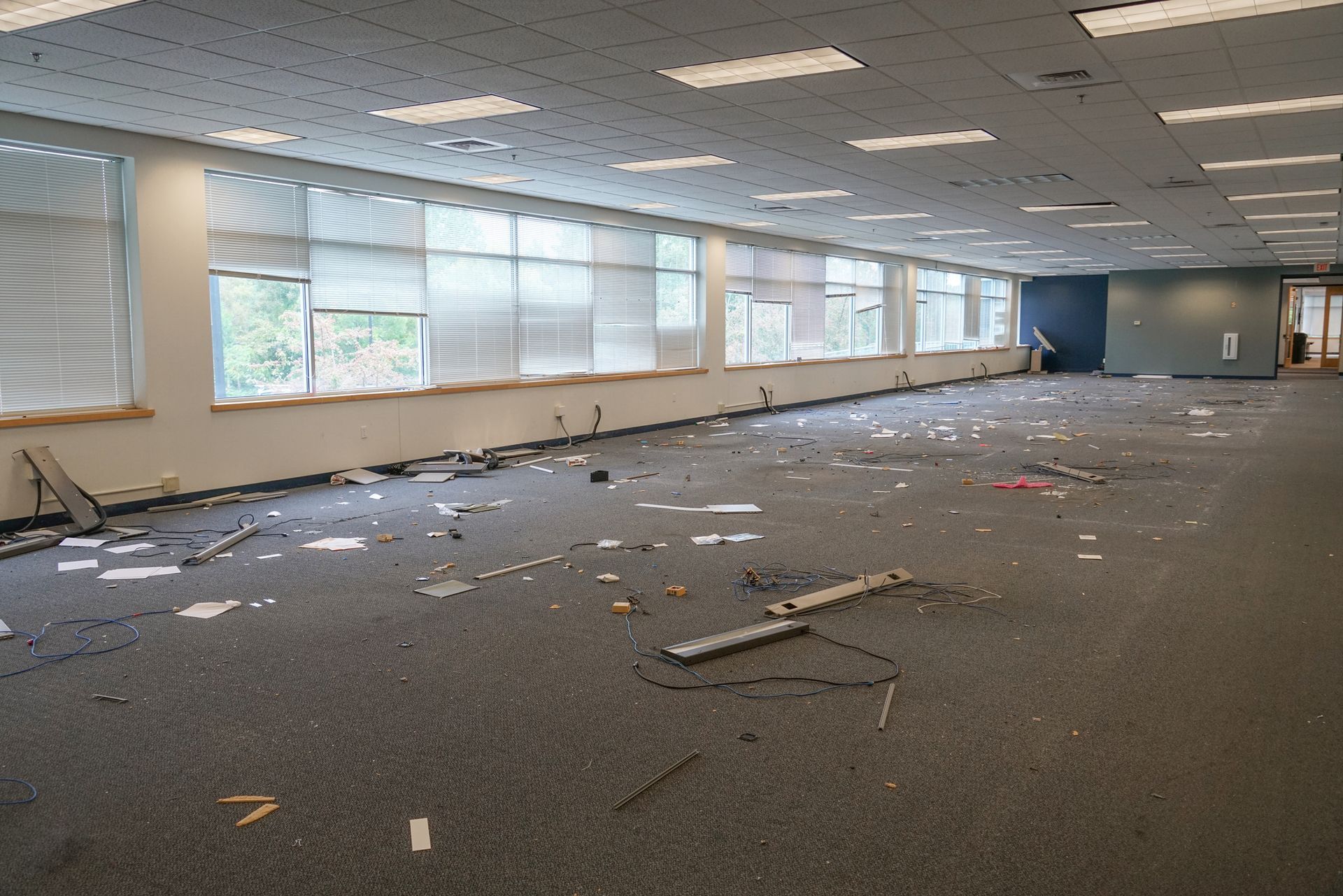By Tim Schaaf
•
August 19, 2025
When it's time to breathe new life into a commercial space, interior demolition is often the first and most critical step. Whether you're renovating an aging office building, rebranding a retail storefront, or repurposing an industrial facility, commercial demolition services provide the blank canvas needed for transformation. These services are critical for property owners and business operators in Pittsburgh seeking to modernize, improve layout efficiency, or meet new tenant demands. What Is Commercial Interior Demolition? Commercial interior demolition is the systematic removal of non-structural components within a commercial building to make way for renovation, repurposing, or modernization. Unlike structural demolition, which involves tearing down entire buildings or core support systems, interior demolition focuses on clearing out selected parts of the interior while leaving the building's shell intact. This process may involve removing interior walls and partitions, ceiling tiles and grids, floor coverings, built-in cabinetry, and mechanical, electrical, or plumbing systems (collectively referred to as MEP systems). For example, in an office building, this might include removing cubicle walls, old HVAC ducts, or outdated lighting fixtures in preparation for a complete floorplan reconfiguration. Commercial interior demolition is often categorized as "soft demolition." This term refers to the removal of non-load-bearing materials that don't affect the building's structural stability. In contrast, "structural demolition" includes the dismantling of beams, columns, floors, or foundation systems, usually as part of a full building teardown. Common Reasons for Interior Demolition Commercial interior demolition plays a crucial role in keeping buildings functional, compliant, and attractive to tenants or customers. A building owner or business might opt for interior demolition for various reasons, each with its own set of goals and considerations. Tenant Improvements and Space Reconfiguration One of the most common reasons for commercial interior demolition is tenant improvement, the process of tailoring a leased space to meet a new tenant's needs. When one tenant leaves and another moves in, the existing layout often no longer serves its purpose. Interior demolition allows landlords to remove existing partitions, fixtures, or design elements to prepare the space for customization. Remodeling or Branding Updates Businesses evolve, and their interiors must evolve with them. When a company rebrands, opens a flagship location, or undergoes a significant transformation, the look and feel of its space often needs to align with the new direction. This might involve removing outdated materials, clearing old retail shelving, or making room for high-end finishes and branded architectural features. Code Compliance or Hazard Abatement Older commercial buildings may not meet today's building codes for fire safety, accessibility, or environmental hazards. For instance, lead-based paint, asbestos-containing insulation , or mold behind drywall may be discovered during inspections. Interior demolition is often necessary to remove these materials safely and legally. In some cases, walls, ceilings, or flooring must be opened up, or entirely removed, to access and replace outdated plumbing, electrical wiring, or ventilation systems. Damage Repair from Fire, Water, or Age Natural disasters, accidents, and time can wreak havoc on interior building components. Fire-damaged ceilings, water-soaked drywall, and rotting flooring are not only unsightly but also present health and safety risks to occupants. Demolition teams can remove compromised materials quickly and safely, helping to restore the property's structural and aesthetic integrity. Prompt interior demolition is significant for insurance claims and restoration timelines. Pre-Demolition Planning and Permitting Before any demolition begins, significant groundwork must be completed to ensure the project goes smoothly and remains compliant with local regulations. The planning phase of commercial interior demolition is often as important as the demolition work itself and involves several technical and regulatory steps. Site Evaluation and Analysis Professional commercial demolition services begin with a detailed site analysis. Contractors conduct as-built surveys to determine the space's current condition and layout, especially if the original blueprints are outdated or missing. They also identify potential hazards such as active utilities, load-bearing structures, and hazardous materials like asbestos, mold, or lead paint. Mechanical systems, such as live electrical wires, gas lines, HVAC ducts, and plumbing, must be clearly mapped and marked before any work can commence. Accidentally cutting into an active system can pose safety risks and lead to significant delays and costs. In some cases, contractors may also perform material sampling to assess which interior elements can be salvaged or recycled. These evaluations influence the demolition plan, safety protocols, and project schedule. Permitting Requirements in Pittsburgh Although interior demolition does not always require the same level of permitting as structural demolition, many cities, Pittsburgh included, do require permits for certain types of work. This is especially true when interior demolition affects fire suppression systems, mechanical systems, or egress pathways. If any demolition involves altering the means of access to exits, changing ceiling heights, or removing parts of sprinkler systems, a permit is almost always necessary. It's critical to work with a licensed commercial demolition contractor who understands Pittsburgh's permitting requirements. They can ensure all required documents, site plans, and environmental reports are filed with the local building department. Failing to obtain proper permits may result in stop-work orders, fines, or complications during renovation. Stakeholder Coordination Interior demolition often takes place as part of a larger renovation effort. That means effective communication and coordination are essential. Contractors work closely with architects, engineers, construction managers, and, in cases, city inspectors to ensure everyone is aligned. By collaborating early, the demolition team can understand what structural elements must remain, identify access points for equipment, and schedule work to minimize disruption. For occupied buildings, demolition might need to be phased or conducted during off-hours, adding complexity to scheduling and waste management. This is where detailed planning comes in. Key Steps in the Interior Demolition Process Once planning and permitting are complete, the actual demolition work begins. This process is far more strategic and organized than simply knocking things down. Each step is designed to prioritize safety, minimize disruption, and create a foundation for restoration. Job Site Preparation The first step in any interior demolition project is site preparation. Crews begin by installing protective barriers, such as dust curtains, temporary walls, or containment chambers, to isolate the work zone and protect unaffected areas. If the building is partially occupied, special care is taken to reduce noise and dust transfer to adjacent offices or businesses. Safety signage is posted, and emergency exits are clearly marked. Utilities are shut off or rerouted as needed, with lockout/tagout procedures in place to prevent accidental reactivation. Contractors will also create debris staging areas and loadout routes, ensuring waste materials can be removed quickly and safely without interfering with daily building operations. Selective Demolition Techniques Interior demolition is often performed with a mix of manual tools (such as sledgehammers, pry bars, and reciprocating saws) and mechanical equipment (like skid steers, mini excavators, or floor grinders). Contractors may use different techniques depending on the material, layout, and constraints of the space. For example, manual demolition is best for delicate areas or when working close to preserved systems. At the same time, mechanical methods are preferred for removing heavy flooring, cutting through concrete, or working at scale. In high-rise buildings or tight downtown sites, contractors may use vacuum lifts or dollies to move materials through elevators or narrow stairwells. Debris Removal and Waste Sorting As demolition progresses, crews separate materials by type to facilitate recycling and disposal. Metals such as copper wiring or steel framing are collected separately from wood, drywall, or mixed debris. This step is essential for keeping the job site organized and reducing environmental impact. Waste is typically hauled to licensed transfer stations or recycling facilities at scheduled intervals. Some contractors provide full-service hauling, while others partner with waste management companies. Proper sorting also helps clients save on landfill fees and earn LEED points if sustainability is a project goal. Final Sweep and Cleanup Once all targeted materials are removed, crews perform a thorough cleanup of the space. This includes sweeping floors, vacuuming dust, and ensuring that remaining surfaces are clean, dry, and ready for the next construction phase. In some cases, demolition teams may also patch holes, remove temporary barriers, or apply sealants to exposed areas to prevent future damage. Safety Considerations and Compliance Safety during demolition is critical for every project. While the work may not involve bringing down entire structures, it still poses a wide range of risks from airborne contaminants to electrical hazards. Worker Protection Measures The demolition team is required to be equipped with Personal Protective Equipment (PPE) tailored to the job site's conditions. Standard PPE may include hard hats, steel-toed boots, gloves, safety glasses, and hearing protection. Depending on the materials involved, such as old insulation, mold, or lead paint, additional respiratory protection or full-body suits may be required. Ventilation is another important factor, especially in enclosed spaces. If dust, fumes, or chemical residues are likely to be released during demolition, contractors must use fans, HEPA filtration units, or negative air pressure systems to maintain safe air quality levels. In some cases, ducted exhaust systems may be installed to direct airborne particles outside the building envelope. Environmental Safety and Hazardous Materials Commercial buildings, especially those built before the 1980s, often contain hazardous materials such as asbestos, lead-based paint, polychlorinated biphenyls (PCBs), or even old mercury thermostats. These substances require special handling and disposal procedures governed by the Environmental Protection Agency (EPA) and the Occupational Safety and Health Administration (OSHA). Before demolition begins, licensed contractors often conduct environmental assessments to determine if hazardous substances are present. If found, proper abatement procedures must be followed. These might include encapsulation, complete removal by certified abatement professionals, or temporarily halting demolition to allow for remediation. Dust control is another important consideration, not only for visibility and worker health but also for protecting nearby tenants or retail operations. Water misting, vacuum-assisted tools, and plastic sheeting help contain particulate spread throughout the project. Hiring the Right Commercial Demolition Contractor Choosing the right commercial demolition contractor can mean the difference between a smooth, on-budget project and one filled with delays, miscommunications, and safety issues. Commercial interior demolition demands more than brute force—it requires precision, planning, and local expertise. What to Look For in a Contractor First and foremost, ensure the contractor is fully licensed and insured to perform demolition work in the state of Pennsylvania and within the City of Pittsburgh. This protects both you and the contractor in the event of an accident or dispute. Look for companies that specialize in commercial interior demolition rather than residential or full-building demo. These specialists are more likely to have experience working in active buildings, coordinating with general contractors, and navigating the unique challenges of tenant improvements or phased renovations. Reputation matters, too. Ask for references or review past projects to assess whether the contractor has a record of delivering on time, within budget, and to code. If the project involves hazardous material removal or LEED requirements, look for certifications in asbestos abatement, LEED documentation, or sustainable construction practices. The Value of Local Knowledge Working with a Pittsburgh-based commercial demolition contractor brings additional advantages. These local professionals are familiar with the city's permitting processes, historic building considerations, and local construction norms. They're also likely to have relationships with local building inspectors, waste haulers, and subcontractors, which can help streamline approvals and keep the project moving. Questions to Ask Before Hiring To ensure you're making the right choice, ask potential contractors: How do you handle unexpected discoveries, such as hidden asbestos or unmarked wiring? What steps do you take to ensure site safety and regulatory compliance? Can you provide a written scope of work, estimated timeline, and cost breakdown? Are you familiar with Pittsburgh-specific building codes and permit requirements? The answers to these questions will give you insight into the contractor's professionalism, preparedness, and suitability for your project. Cost Factors and Budgeting Interior demolition projects can vary widely in cost depending on their size, complexity, and requirements. While it's tempting to focus solely on the contractor's hourly rate or square footage estimate, several additional cost factors must be considered. Primary Cost Drivers The most significant variables affecting commercial demolition services include: Square Footage: Larger spaces naturally require more labor, equipment, and time. Material Types: Some materials are more difficult and expensive to remove. For instance, tile set in mortar or concrete requires heavy equipment, while drywall can often be dismantled by hand. Utility Disconnections: Cutting and capping plumbing, gas, and electrical systems often requires licensed tradespeople and must be factored into the demolition budget. Disposal and Hauling Fees: Waste removal is a significant cost driver. Materials must be sorted, loaded, and transported sometimes to multiple facilities for recycling or disposal. Access and Location: Demolishing a fifth-floor downtown office suite is inherently more complicated and time-consuming than working in a single-level suburban warehouse. Hidden Costs to Watch For Unforeseen conditions can quickly inflate your budget. Common hidden costs include: Hazardous Material Abatement: If asbestos, lead, or mold is discovered, remediation may be required before work can continue. Permit Delays: Incomplete documentation or changes to project scope can delay approvals and push back timelines. Overtime Labor: If demolition must occur at night or on weekends to avoid disrupting tenants, labor costs may rise. Getting an Accurate Bid To avoid budget surprises, request a detailed quote from your commercial demolition contractor. A well-structured bid should include: A clear scope of work Labor and equipment costs Debris disposal and hauling Permitting and inspection fees Contingency allowances for unforeseen issues Some contractors also offer value-engineering advice to help you identify cost-saving opportunities—such as recycling materials or sequencing demolition to align with construction phases. Call Schaaf Excavating Contractors Today for Commercial Demolition Services! From pre-demolition assessments and safety compliance to debris removal and sustainability efforts, every phase of the demolition process benefits from the expertise of a qualified team. Working with a licensed commercial demolition contractor, like Schaaf Excavating Contractors, ensures the work is done efficiently, safely, and in compliance with Pittsburgh's permitting and building codes. If you're planning a renovation or remodel in the Pittsburgh area, don't leave demolition to chance. Partner with our team that specializes in commercial demolition services and understands how to deliver results that set the stage for long-term success.
